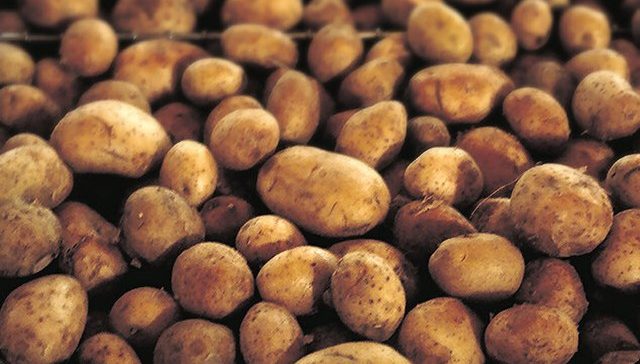Of late, the Egypt potato market has been recording high demand amid low supplies, making the staple expensive.
A part of the demand owes to customer switch to potatoes as a cheaper alternative to inflated fruits, fish and meat.
Hatem El-Nagib, vice president of Vegetables and Fruits Division at the Egyptian Chambers of Commerce attributes the crisis to seed import issues and low local yields.
El-Nagib told Ahram Online that seed import problems have slashed year-on-year quantities by 25%, as of June 2024.
He added that a 24-month shortage of the American dollar in the country partially prevented the import of quality seed potatoes.
Apart from this, supply has decreased due to climate effects. Apparently, extreme heat has cut 2024 yields to 9 to 12 tonnes an acre versus 2023’s 14 to 16 tonnes an acre.
At the time of sharing this information, the wholesale and retail prices of potatoes had notched up in markets across Egypt.
By end July 2024, a tonne cost from 19,000 to 23,000 Egyptian pounds ($385.70-466.90) wholesale. This is even as the same tonne cost from 30,000 to 35,000 pounds ($608.70-710.50) retail.
Comparatively, consumer retail markets such as Carrefour were charging at least 26 Egyptian pounds ($0.53) per kg, end July.
All the same, customers have rallied to the pricey potatoes as they abandon inflation-hit fruit and meat alternatives.
Though Egypt’s food inflation declined to 31% in May 2024 from September 2023’s peak of 73.6%, fruit prices still hiked by 15.5% in May.
Eggs and poultry meat on the other hand shed 11.9% and 8.4% respectively in May prices. However, they still contributed 0.78% to the month’s food inflation rate.
This is even as fish and seafood cost 2.1% less but still added 0.06% to the food inflation in May.
Possible solutions for the Egypt potato price issue include plans to postpone exports except those already under contract.
The other alternative is price subsidization at national outlets such as Ahram and Nile depots, which could cut prices by between 25 and 30%.
In a word, strategy is key to Egypt’s ongoing price battle for its currently inadequate popular potato produce. To learn more about Egypt’s most important tuber crop, below are additional statistics.
Egypt Potato Statistics
Potatoes are a food staple in Egypt and are usually a cheap alternative by families when other foods become expensive. The crop grows under irrigation in the lower Nile Delta in the north (72% of national production) and Middle Egypt (16% of production). Large-scale farms here have seen production increase yearly by at least 5%, beginning 1961. As such, Egypt is a top 15 potato-producing nation, whose 2022 output hit 6.16 million tonnes. This earned the country the 12th world production position, which China topped at 95.57 million tonnes. Egypt also ranks 1st in Africa in potato production, ahead of neighboring Algeria, at 4.3 million tonnes, in 2022.
How much potatoes do Egyptians eat per year?
In 2021, Egyptians consumed 38.4 kg of potatoes per year. This was a 4.67% drop from the historical peak year, 2020, which boasted 40.3 kg per person per year. In 2021, Egypt ranked 65th among 165 nations in potato consumption per capita.
What is Egypt’s world rank in potato exports?
Egypt was 5th in global potato exports by country in 2022 with a dollar value totaling $357 million, according to OEC. This represented 855,920 tonnes or almost a 1/6th of the country’s total potato production. Potatoes was also the second highest agricultural export in Egypt after citrus in 2022. Only the Netherlands, France, Germany and Canada in descending order of earnings had bigger export turnover in 2022.
